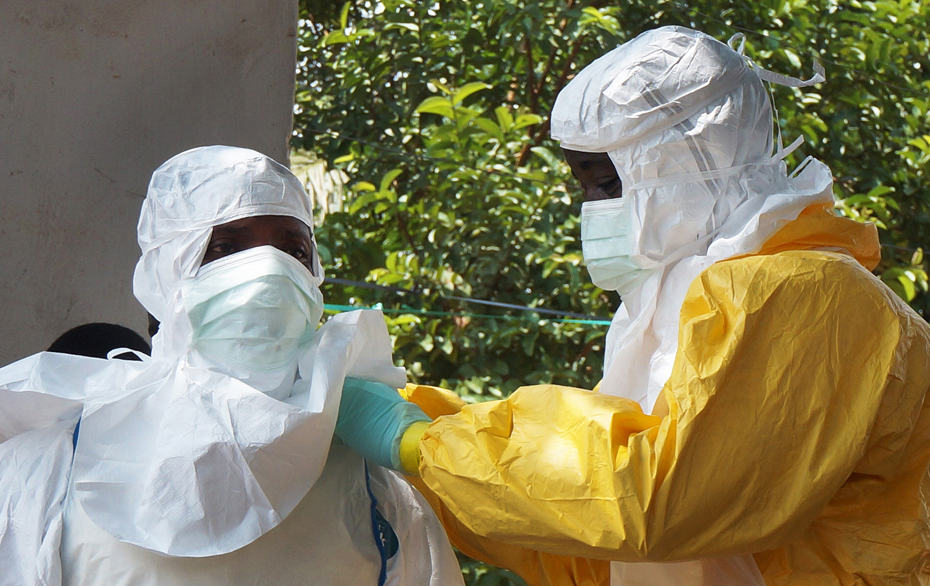
MONROVIA, Liberia (BP) — As the deadly Ebola epidemic in West Africa continues to spread, many Africans find themselves being forced to take precautions that are counter to their culture, report Christian workers in the region.
“Africans live and love community,” Sam Gardner,* medical doctor and Christian worker in West Africa, said. “Greetings as well as farewells in African life are very important. When not done properly, or neglected, offense is taken.”
Gardner said attempts to get people not to shake hands, because doing so could transmit the Ebola virus, runs against a lifetime of experience.
“They have a hard time seeing themselves outside of the group,” Gardner said. “That is why many resist going to the hospital, or hide their illnesses.”
Descriptions of “quarantine” and being isolated from friends and family do not sit well with the African mind, workers say. For this reason, many delay seeking help against other illnesses that contain symptoms that are similar to Ebola.
“More people are dying of malaria now than they ever have,” Rebecca Waters, a Christian worker in West Africa, said. “The reason is because when they get malaria symptoms, they do not get treatment. If they do, they will be sent directly to the Ebola testing center, and of course they all know that is called the place where people go to die.”
According to related media reports and the World Health Organization (WHO), there have been more than 1,550 deaths due to the Ebola virus since March. While Guinea, Liberia and Sierra Leone have seen the majority of the more than 3,000 reported cases, Nigeria, Senegal and the Democratic Republic of the Congo are now also reporting outbreaks.
Some Africans refuse to believe the numbers.
“It is becoming more and more common that people are believing that Ebola is not a problem, and that the media is blowing it out of proportion,” Waters said. “They are saying that the numbers are wrong and that it is all a conspiracy.”
Yet, WHO has warned the number of cases could reach 20,000, because Ebola is spreading so rapidly.
Fear is becoming a larger problem than the problem itself, Christian workers say.
“We have heard stories of Red Cross and Doctors Without Borders convoys being run out of villages by people with rocks and machetes,” Rachel Hays,* a Christian worker in the region, said. “They fear those that are trying to help them because they now believe that it is the white man who brought Ebola here in the first place and that they are not here to help, but to infect everyone.”
Superstition and traditional religion promote fears that keep Africans from receiving treatment. One of these superstitions includes burial of the dead.
“Funerals are important affairs with many rituals,” Gardner said. “There are those who believe that if the body is not handled properly, their loved one would not fare well in the afterlife. Bodies must be cleansed and placed in the ground a certain way within 24 hours.”
Many Africans believe that the higher attendance at a funeral corresponds with the righteousness of the deceased one’s life.
“This is why so often people want to bury their own dead in their way,” Gardner said. “Grief and these pressures keep the family of the deceased from listening to efforts to explain that Ebola can be transmitted by contact with dead bodies.”
Despite the cultural boundaries, Christian workers in West Africa remain positive.
“Where there is fear, the message of peace has an opening,” Gardner said.
The epidemic has opened doors to sharing the Gospel, because of the many speculations about Ebola.
“Some people see Ebola as a pestilence,” Kollie Way,* a Christian worker in West Africa, said. “[It is] additional evidence to them that the return of Christ is near. Some see it as punishment for the evil in the country, and others wonder if God has turned His back on their country.
“Right now, Ebola is a roadblock, but we know The One who can pave roads and build bridges … will move His word beyond any obstacle,” Way said.
Christian workers ask for fellow believers to continue praying that the Gospel will be communicated clearly to those in West Africa who are living in fear and are affected by Ebola.
–30–
Emily Easttom is a writer for IMB’s Global Communication Team.
Get Baptist Press headlines and breaking news on Twitter (@BaptistPress), Facebook (Facebook.com/BaptistPress) and in your email (baptistpress.com/SubscribeBP.asp).
















